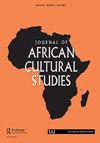Speargrass Blossoms: Patriarchy and the Cultural Politics of Women’s Ephemerality on the Land in Acholi
IF 0.9
2区 社会学
Q2 CULTURAL STUDIES
引用次数: 2
Abstract
ABSTRACT Women’s land rights remain a highly contentious issue across much of contemporary Africa. Often, social infrastructures, namely the law, culture and patriarchy, are impugned for excluding women from the land. While sometimes culture sustains social injustices, it also paradoxically provides the scale of justice. With reference to post-war Acholi society, I question the role of patriarchy in buttressing the temporariness of women on the land by anchoring my discussion in three Acholi cultural expressions. First, the metaphor that lutino anyira turu obiya, girl children are speargrass blossoms which indicates that girls are considered as ephemeral in natal lands since they emigrate in marriage and gain land rights in their nuptial lands. Second, the metaphor of lutino awobe okutu lang’oo – boy children are cordia africana thorn bushes, which is a plant associated with permanency and territoriality. Third, the proverb gang ber ki mon, the home is good with women. The femininisation of home-making in this proverb indicates how gender dynamism in Acholi utilises femininity as an organising principle and that patriarchy safeguards land rights through marriage, ancestry and kinship.矛草之花:父权制与阿乔利土地上女性短暂性的文化政治
摘要:在当代非洲的大部分地区,妇女的土地权利仍然是一个极具争议的问题。社会基础设施,即法律、文化和父权制,往往因将妇女排斥在土地之外而受到指责。虽然有时文化维持着社会的不公正,但矛盾的是,它也提供了正义的尺度。关于战后的阿乔利社会,我通过将我的讨论锚定在三种阿乔利文化表达中,质疑父权制在支持妇女在土地上的临时性方面的作用。首先,鲁蒂诺·安伊拉·图鲁·奥比亚(lutino anyira turu obiya)的比喻是,女孩是矛草花,这表明女孩在出生地被认为是短暂的,因为她们在婚姻中移民并在结婚地获得土地权。其次,lutino awobe okutu lang'oo的比喻——男孩的孩子是非洲堇属荆棘丛,这是一种与永久性和属地性相关的植物。第三,俗话说,家里有女人好。这句谚语中的家务女性化表明,阿乔利的性别活力是如何利用女性气质作为组织原则的,父权制通过婚姻、祖先和亲属关系来保障土地权利。
本文章由计算机程序翻译,如有差异,请以英文原文为准。
求助全文
约1分钟内获得全文
求助全文
来源期刊

Journal of African Cultural Studies
Multiple-
CiteScore
1.70
自引率
10.00%
发文量
13
期刊介绍:
The Journal of African Cultural Studies publishes leading scholarship on African culture from inside and outside Africa, with a special commitment to Africa-based authors and to African languages. Our editorial policy encourages an interdisciplinary approach, involving humanities, including environmental humanities. The journal focuses on dimensions of African culture, performance arts, visual arts, music, cinema, the role of the media, the relationship between culture and power, as well as issues within such fields as popular culture in Africa, sociolinguistic topics of cultural interest, and culture and gender. We welcome in particular articles that show evidence of understanding life on the ground, and that demonstrate local knowledge and linguistic competence. We do not publish articles that offer mostly textual analyses of cultural products like novels and films, nor articles that are mostly historical or those based primarily on secondary (such as digital and library) sources. The journal has evolved from the journal African Languages and Cultures, founded in 1988 in the Department of the Languages and Cultures of Africa at the School of Oriental and African Studies, London. From 2019, it is published in association with the International African Institute, London. Journal of African Cultural Studies publishes original research articles. The journal also publishes an occasional Contemporary Conversations section, in which authors respond to current issues. The section has included reviews, interviews and invited response or position papers. We welcome proposals for future Contemporary Conversations themes.
 求助内容:
求助内容: 应助结果提醒方式:
应助结果提醒方式:


